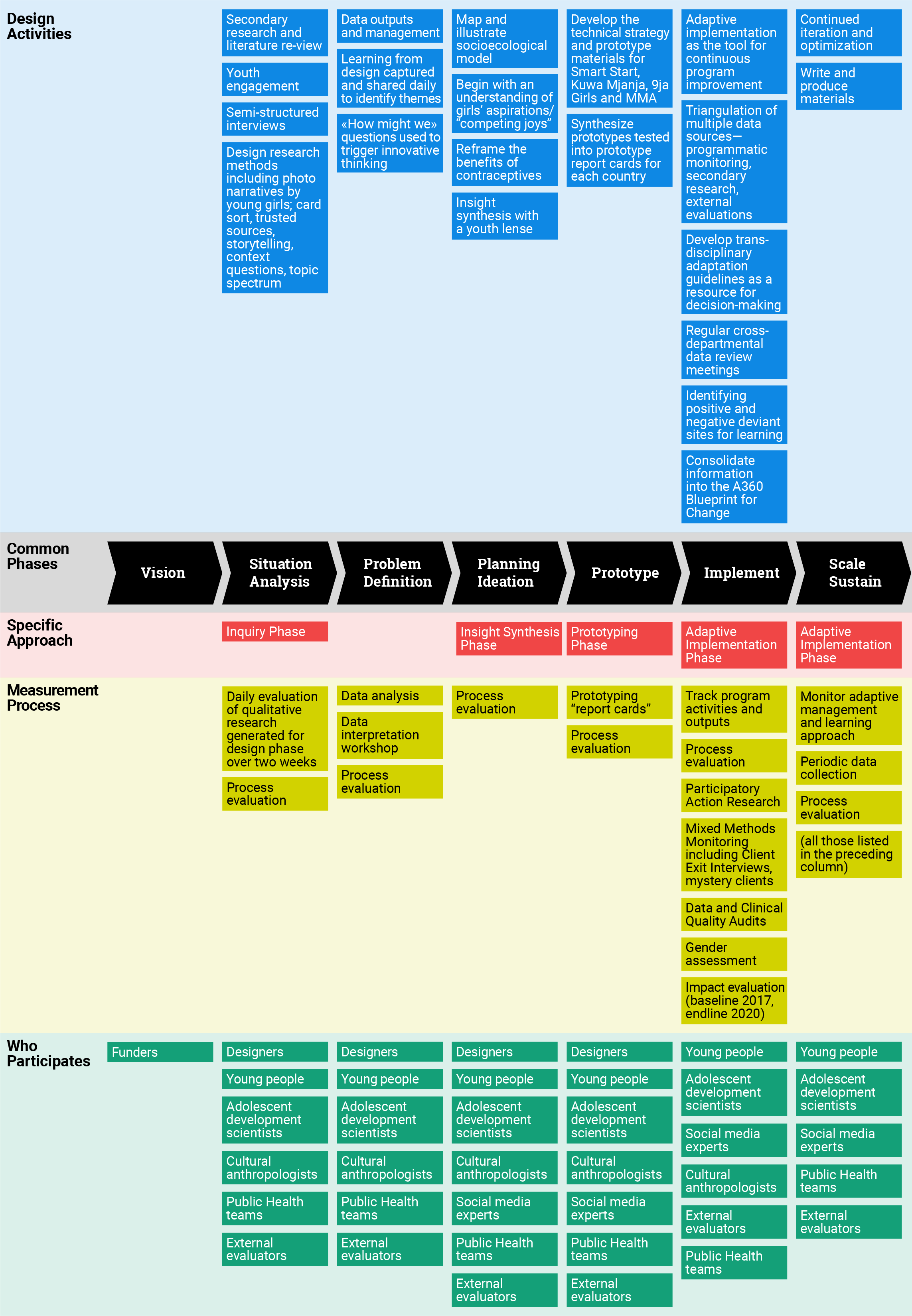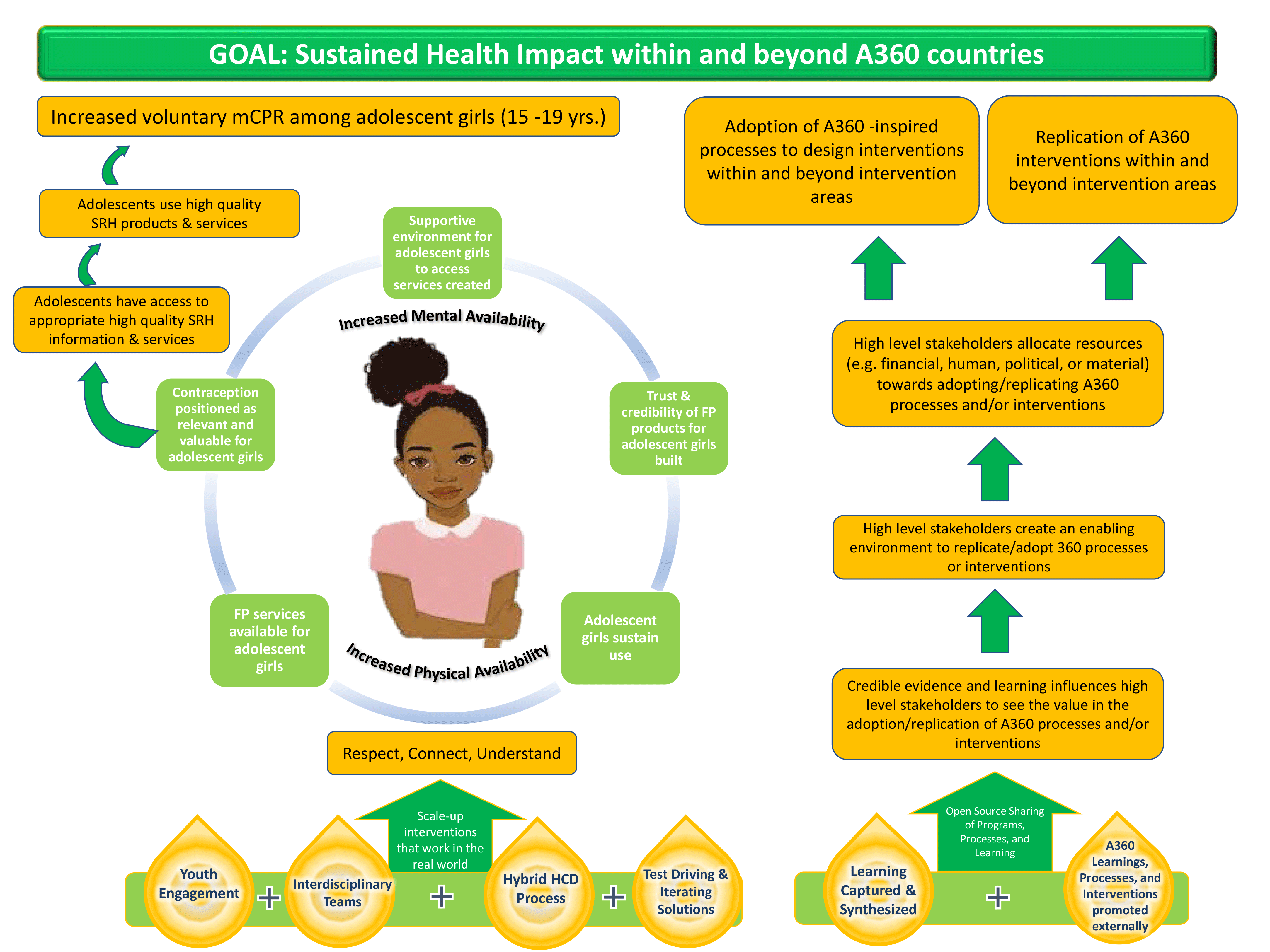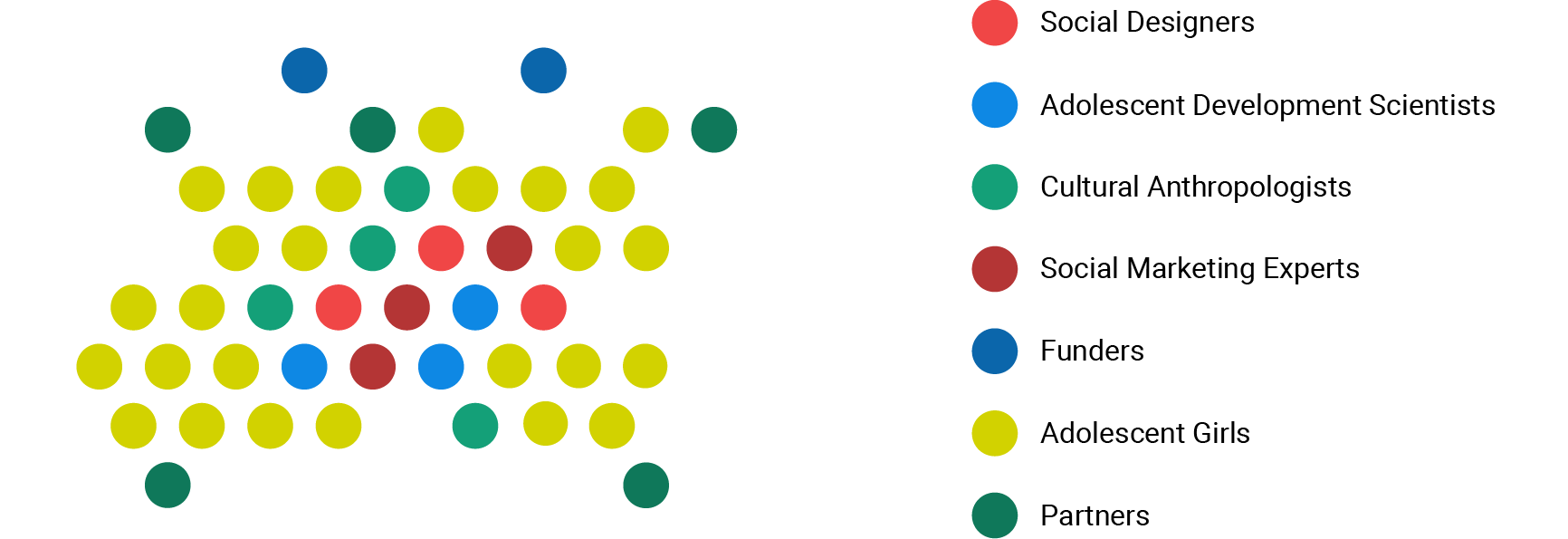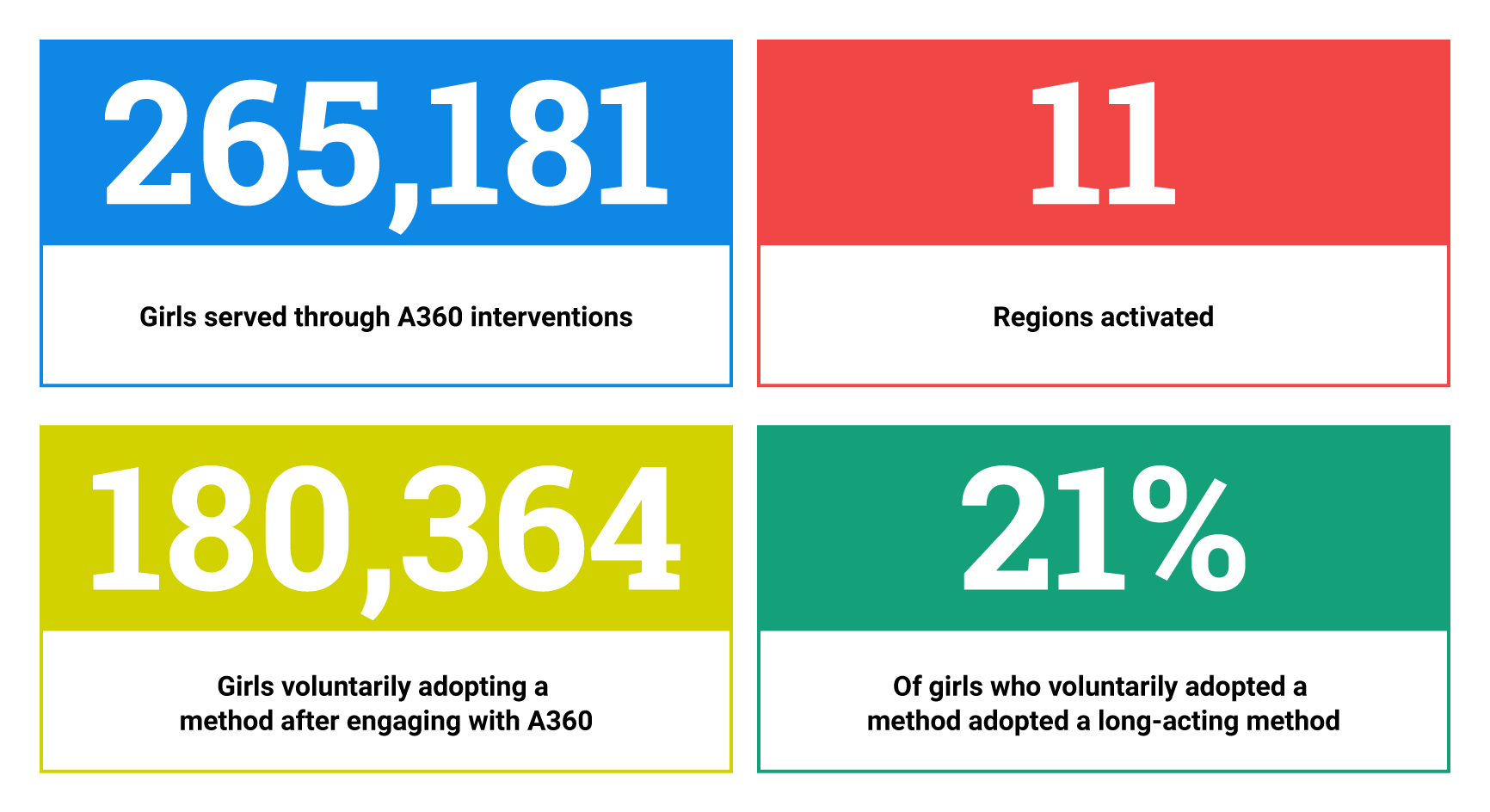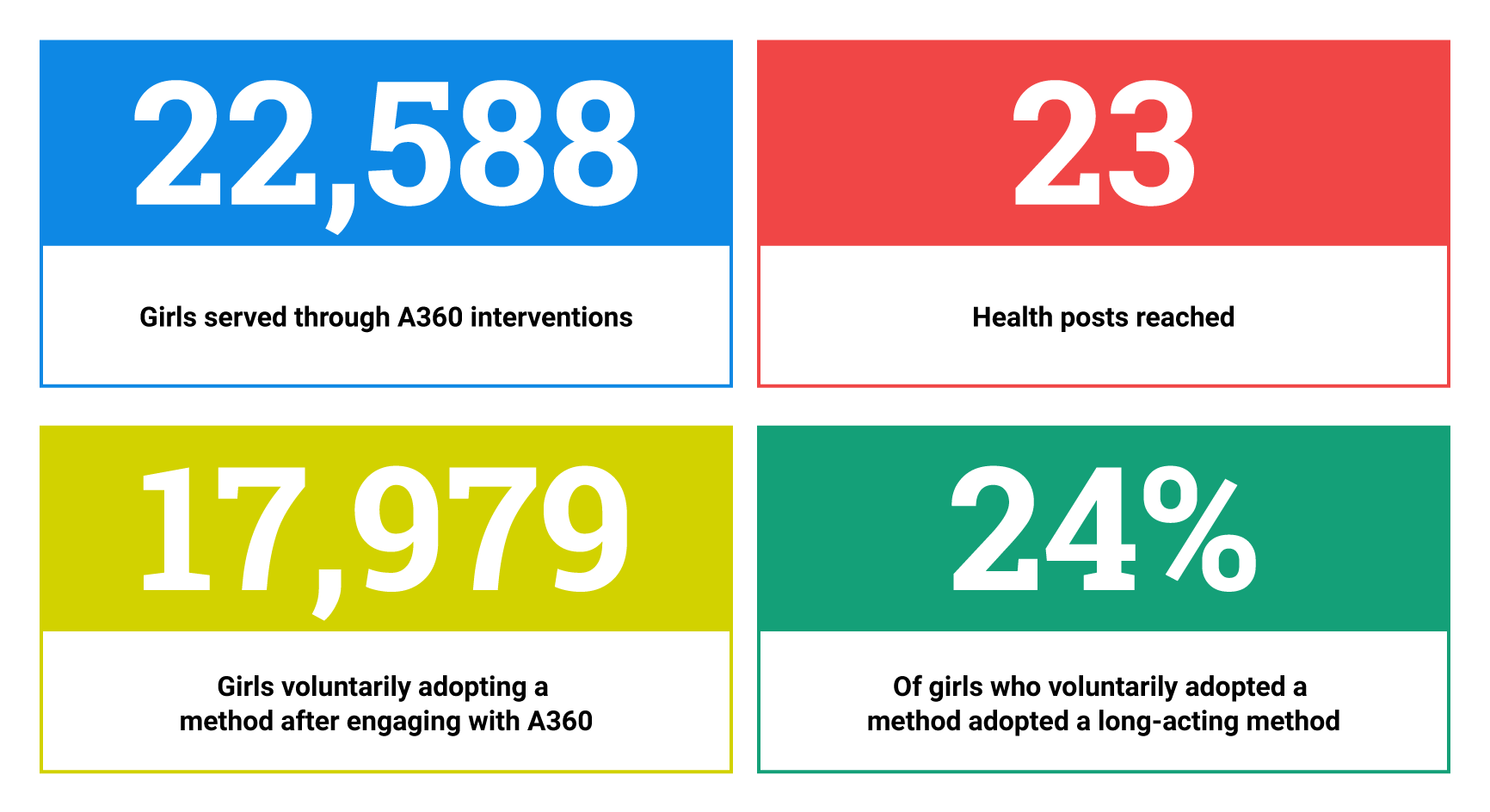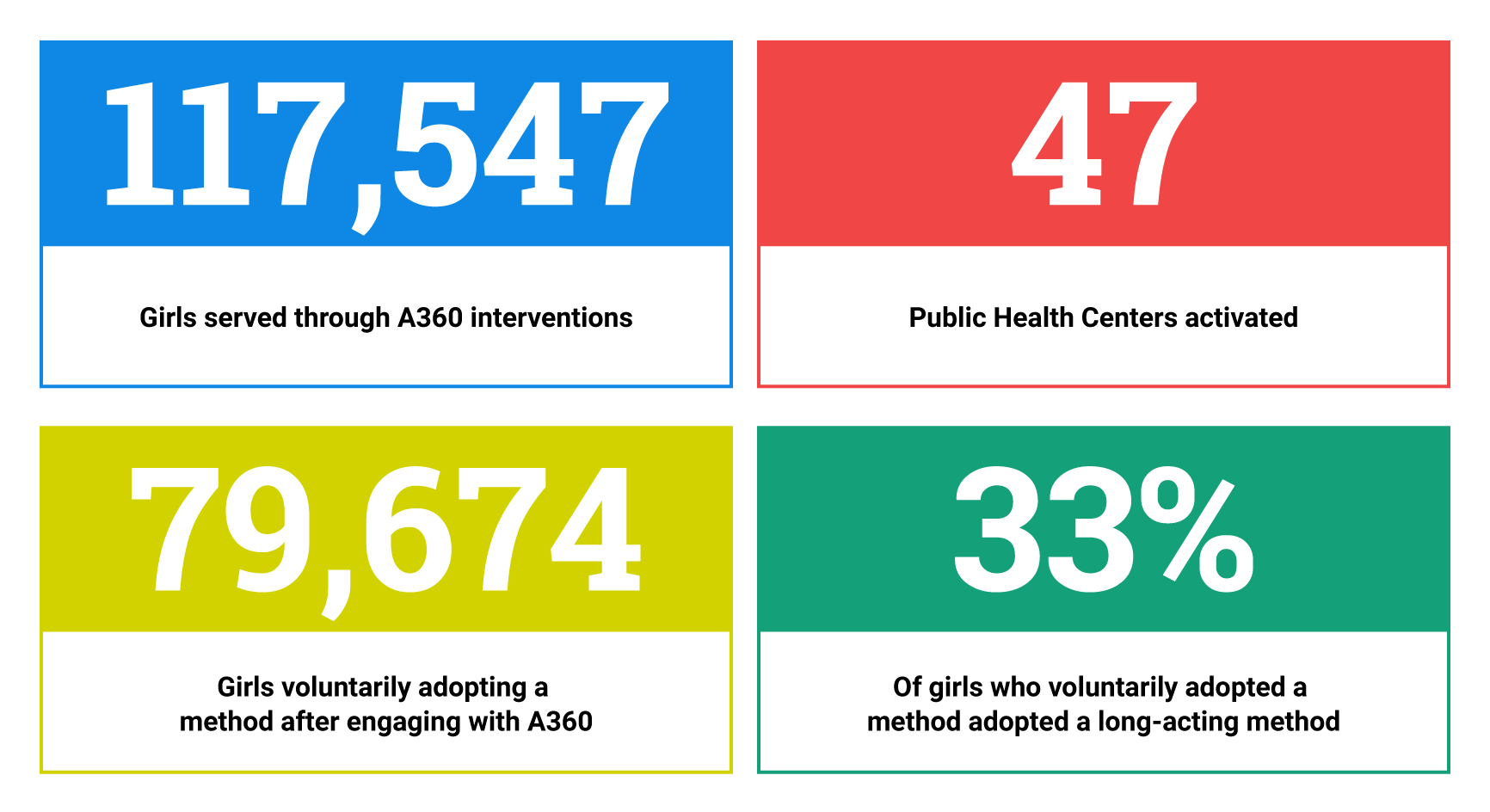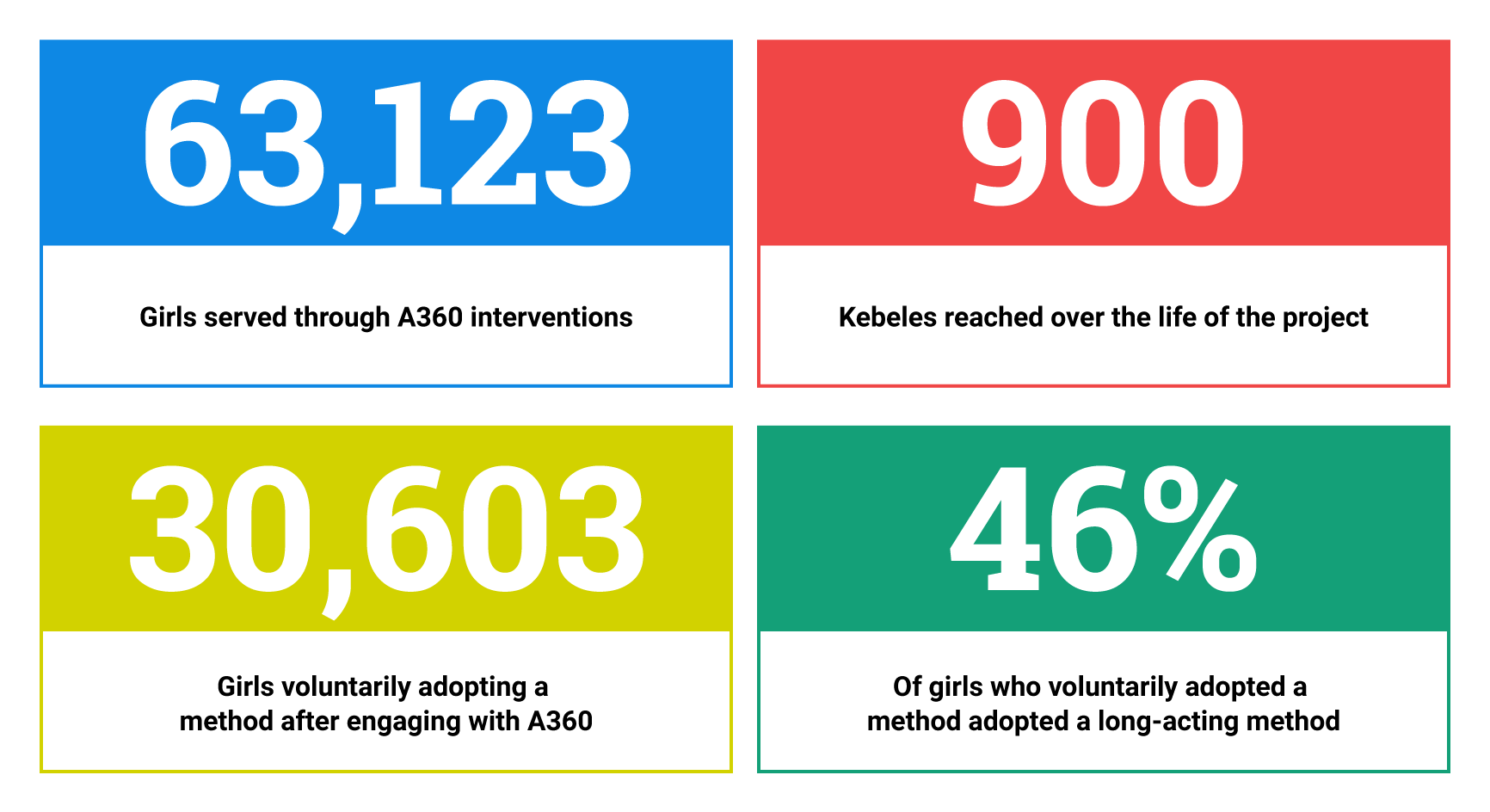Adolescents 360 is a consortium of organizations, including PSI, IDEO.org, Society for Family Health Nigeria, Center for Developing Adolescent and Triggerise. A360 is being evaluated by Itad, with evaluation partners Avenir Health and the London School of Hygiene and Tropical Medicine (LSHTM). The initiative is funded by the Bill & Melinda Gates Foundation, and The Children’s Investment Fund Foundation.
While many organizations have contributed to the evidence-base of best practices for adolescent girls to uptake modern contraception, there remains an unmet need for modern contraception across developing countries, and scalable solutions remain elusive.
Adolescents 360 is unique in its use of a transdisciplinary approach, integrating best practices in ASRHR with larger public health, adolescent developmental science, cultural anthropology, social marketing, meaningful youth engagement, and human centered design (HCD) lense to generate four interventions across three countries. Each discipline fused to form a foundational core experience across the three countries, informing a transformative contraceptive user journey for girls:
- Adolescent developmental science brings understanding of adolescents’ cognitive and hormonal development and resulting evolving motivations.
- Cultural anthropology contributes a framework for understanding the societal and cultural influences that shape girls’ self-perception and worldview.
- Meaningful youth engagement provides a process for engaging young people as core partners and experts of the unique cultural, religious and societal experiences that shape how girls and their influencers view contraceptives, as well as the world around them.
- Social marketing enables interventions that deliver relevant messaging in ways sensitive to the larger market dynamics in which consumers must access them.
- Human centered design provides a process for working together to uncover insights and leverage them toward action through ideation, prototyping, iteration and early stages of implementation. HCD helped define three initial interventions.
- Public health provides the health system lens and systematic scale-up approaches necessary to ensure the interventions are relevant and appropriate to the service delivery context and feasible for delivery at large-scale.
Today, the project applies an adaptive implementation approach using evidence to continually refine these interventions in partnership with youth and local actors, as the interventions are scaled.
Content for this case is adapted from www.a360learninghub.org
